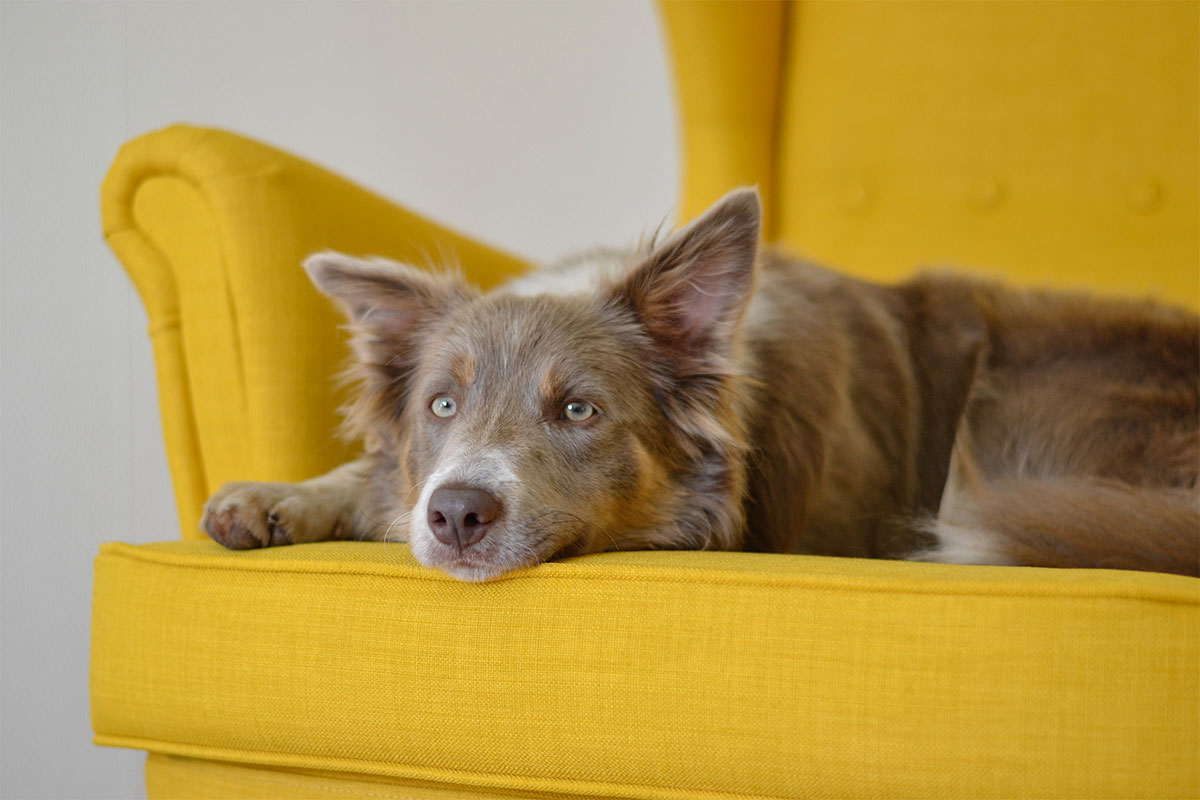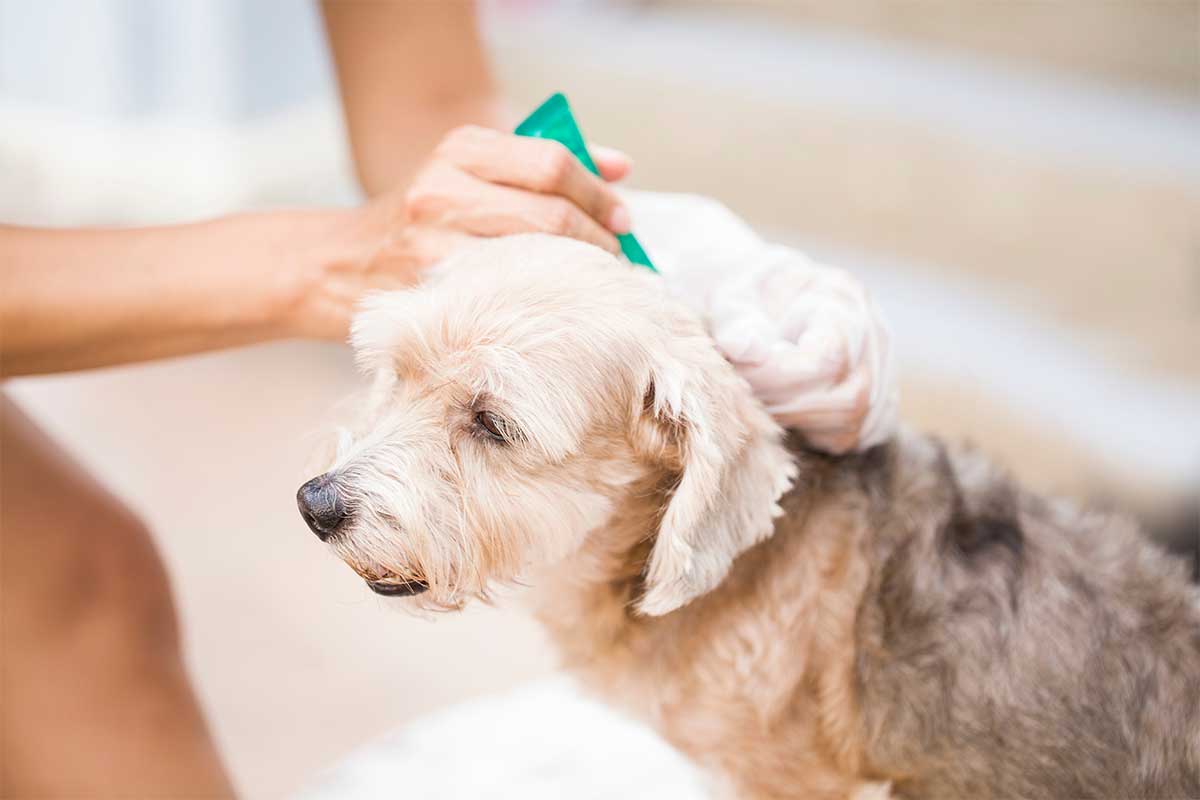
Back when the pandemic first hit Northern Virginia, and workers retreated to their home offices to telework, people wondered, “Why is my dog acting so weird?” and needed tips on how to get work done while also taking care of pets 24/7. And now, at a time where pets and owners have adjusted to their new daily routines, they’re asking, “What’s going to happen to my dog when I go back to the office?”
It’s a valid question: How will pets react when their owners leave again and aren’t constantly at home? Will pets be more prone to separation anxiety than they were before the pandemic?
We spoke with two local veterinarians to get the answer, and for tips on how to mitigate any issues that come up with pets as owners adjust to yet another new daily routine as Virginia continues to reopen. See highlights from our conversation with Amy Pike, DVM, of the Animal Behavior Wellness Center, and Leslie Sinn, DVM, of Behavior Solutions for Pets.
First, why do pets experience separation anxiety, and which pets (dogs, cats, etc.) are most susceptible?
AP: Unfortunately, we do not really know why certain pets develop separation anxiety and others don’t. It is likely a combination of factors, including characteristics of the pets and the environment (nature and nurture) as is true for other emotional disorders. Dogs are the most common pets with separation anxiety that I see, but I do see a handful of cats with the disorder as well. Birds can also develop separation anxiety.
LS: We aren’t completely sure what causes separation anxiety in pets. Specific etiology is not known. Canines are social animals selected for pleasing people and therefore separation from familiar figures may cause some degree of distress. Dogs seem to be more likely to be affected. Mixed breeds are just as likely to develop separation anxiety as purebreds. Male dogs (60%) are more likely to develop it than female dogs (40%) and neutered dogs are more likely to have issues than intact dogs. Most dogs show signs of separation anxiety before 3 years of age. If an older dog develops signs, you first need to rule out cognitive decline. Certain dogs are more likely to exhibit separation anxiety, including dogs acquired from shelters, rescue groups or veterinary hospitals; dogs found as strays; dogs that never attended obedience class; and dogs that follow owners and/or show excessive greeting behavior. Cats and parrots are often overlooked but have also been documented to experience separation anxiety.
Should pet owners expect their pets to have heightened separation anxiety after the stay-at-home order is lifted, especially since the majority of residents have been home way more often than before the pandemic began?
AP: I think this will remain to be seen as it happens. Thankfully, we have never had such an occurrence in our existence, so time will tell what the outcomes of us being home all the time will be. Likely, the pets with separation anxiety (mild to moderate) prior will still have it, and it may get worse. My other big concern is those families who got puppies during this time frame and the puppies never learned that they have to be home alone at times. However, it will all depend upon the resilience of the individual pet. Some will be fine, and others will not be able to cope with the transition.
LS: Great question! Separation anxiety is actually a hot topic of discussion among both trainers and veterinary behaviorists. We are concerned. The COVID-19 pandemic is an unprecedented situation. Spending 24/7 for months on end with a pet is likely to create a new norm that will abruptly end when owners eventually return to work. It would be naive to assume that a change like that will go smoothly for everyone. With that in mind, it would make sense to be as proactive as possible to minimize problems before they happen. We know it is a common and under-diagnosed problem.
What are the best ways to handle separation anxiety with pets? What are your top tips for pet owners?
AP: Seek treatment immediately and talk to your veterinarian. Separation anxiety is not something that will get better by hoping it will simply go away. Never punish a pet when you come home to destruction or urination/defecation in the home. This will only serve to make the separation anxiety worse by making your return associated with anxiety for the pet. The more your pet does not have to be left alone during treatment, the better it will go. So if they are a candidate for doggie day care, you can take them there several days per week to help. Otherwise, getting a dog sitter to come be with them during the day will help, and trying to telework as much as possible too.
LS: Common sense actions, such as encouraging independence, teaching “go to place” and working on developing a settle/relaxation/chill response, spreading out care to all members of the household, stepping away from the dog periodically (quiet time, crate time, separate room), trips away from dog (car ride to go to the grocery store or post office, etc.), no drama on departures or returns and providing a long-lasting, tasty treat when you leave.
What are signs of separation anxiety in dogs and in cats? Are they different or similar?
AP: For dogs, you can see urination and defecation in the home, destruction (especially around exit doors and windows that they can see out of, or items that smell like the owner), panting, which can result in excessive thirst when the owner comes home and a puddle of drool, lack of appetite in the morning prior to any departures and definitely while the owner is out of the home and vocalization (whining, crying, etc). For cats, we most often see urination outside of the litter box when the owner is away from the home but also vocalization (meowing, crying, etc). Birds will often vocalize and pluck their own feathers out as a result of separation anxiety.
LS: Separation anxiety is a distress response that a dog may experience when separated from the person or persons to whom it is most attached. This distress response in the absence of the owner may result in problem behavior such as vocalization, elimination and episodes of destruction in the absence or perceived absence of the owner. Separation anxiety is a subset of separation-related problems that may have different underlying motivations including fear, anxiety, over-attachment to owners and lack of appropriate stimulation or interactions.
What are things that owners should definitely not do when their pet is exhibiting behavior that points to separation anxiety?
AP: The biggest thing is no punishment upon returning home to the results of the behavior. The other thing is “making a big deal” about your exit or return home by being exuberant and excessively talking to or paying attention to the pet.
LS: Do not punish your pet as punishment increases anxiety, fear and distress. Remember the pet is not behaving this way to be spiteful or to deliberately get back at the owner. Do not get excited, angry, yell or be effusive during homecoming or departures. Instead, adopt a “no drama” policy.
Other than separation anxiety, in what other ways has the pandemic affected pets that you’ve noticed so far?
AP: The stress level of our patients is up in general. We have definitely seen an increase in incidences of aggression and other fear-based behaviors. Many of my colleagues have reported an increase in injuries seen from aggression from other pets in the house. A human plastic surgeon reported to me that they have seen an increase in dog bites to people as well.
LS: Because people are around their pets more often, behaviors that they used to be able to ignore or that went unnoticed are now catching the owner’s attention and/or becoming annoying. Many pets actually enjoyed their eight to 10 hours of quiet time while owners were at work. Having a household full of people that constantly pet, hug and disturb them has made some pets grumpy. I have actually been “prescribing” nap time in order to give harried pets a break.
Anything else you’d like to add?
AP: Only thing I can think of is the question, “Does adopting another pet solve separation anxiety?” Only in very rare cases does that actually help. Most often the separation anxiety is truly about being separated from the humans and not other pets.
LS: Veterinary behaviorist Dr. Karen Overall is conducting a study of the effects of COVID-19 sequestration on dog behavior. Interested dog owners can go here to participate.
For more tips, subscribe to our monthly Pets newsletter.




